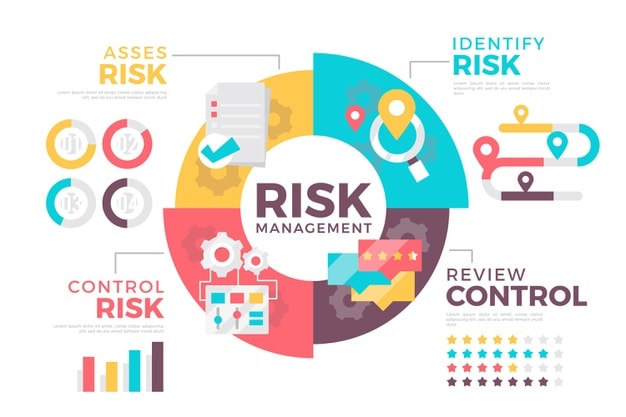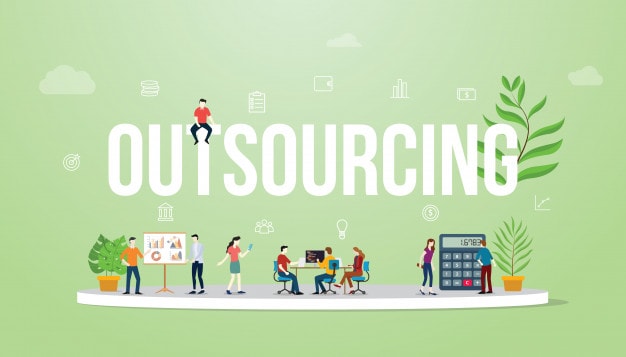Sourcing revolves around the practice of searching out and finalizing businesses or individuals for fulfilling specific criteria. Sourcing in the business is associated with the procedures involved in choosing the suppliers that can provide goods and services essential for running your business.
It is also understood as a sub-set of recruitment at the times when it is used for finding the best-suited candidate for a job profile.
Through this article, we shall go through the essential aspects of sourcing and everything that a businessman needs to take into account to let their business, prosper, and grow. So, without any further ado, let us start unravelling what sourcing is and how it empowers businesses all around the world-
Table of Contents
What Is Sourcing?
Sourcing is a process that involves finding a healthy balance between the raw materials as well as the quality of the finished products and their affordability.
It is associated with a stage that occurs before making a purchase, and that is why it is understood as a subsection of the procurement department.
Sourcing takes into account every activity, including the identification and the thorough assessment of all the potential buyers. It further involves the judicious selection and engagement of a prospective buyer with the appropriate supplier, offering the desired products at the right value.
Looking at the chain of supply in any business randomly, one can take note of the fact that the process of what we call ‘sourcing’ is the most basic and primary step. Businesses should keep in mind the fact that the lesser is the revenue spent, the more is the gain or the profit from any business.
The world of business is vast and encompasses a lot of areas. The relationship between a prospective buyer and a supplier is one of the essential parts that deem attention. – Sourcing initiates, empowers, alleviates, and channelizes this relationship.
While doing business, it becomes utmost essential for people in business to look into certain critical factors to have a promising profit.
With factors like globalization, the rapid development of modern technologies, as well as an increase in the demands of people, the preliminary basis of competition as it was defined in the business world earlier, has undergone rapid changes.
Standing in a world where competition reigns high, it has become crucial for prospective suppliers to find the perfect buyer and thereby let their business prosper. At all such stages, sourcing plays the most pivotal role.
Why Sourcing is Important for the Businesses?
Sourcing is one of the most critical processes that need to be understood and taken into account. More often than not, businesses are found to lag in this process, thereby resulting in incurring a considerable loss.
Often due to poor sourcing processes, companies or businesses are found to have delivered inferior or low-grade products or often less favorable items at higher costs.
The process of sourcing is a crucial step and needs to be incorporated for offering high valued services. Sourcing is the process of taking the benefit of purchasing opportunities by continually assessing the relevant needs, market trends, and available resources in the market.
Sourcing is an essential factor for businesses and companies to look into, to grow and prosper over the years. This further helps in ensuring the stocks as well as keep customers happy and satisfied.
The significant reasons for which sourcing is given so much importance is as illustrated below:
1. Management of the cost
Sourcing strategically benefits both the buyers as well as the suppliers. While on the one hand, buyers can negotiate the prices and thereby reduce it effectively. This further helps in keeping the prices in the retail market competitive. By having a consistent flow of demand, suppliers are benefited effectively.
2. Stability
By finding the perfect source for having the supplies, a healthy partnership can be established between the buyer and the supplier. In such a case, both of them rely on each other and put in efforts incessantly in maintaining the partnership.
3. Risk management
By building a reliable and robust partnership between the buyer and supplier, risk factors can be mitigated or managed effectively.
4. Decisions based upon specific needs
This process primarily involves assessing the needs of the internal customer, who has, in turn, raised the need for purchase. Buyers are then found to understand, assess, and after that, ‘translate’ them into specifications that can be comprehended with ease by a prospective supplier.
In this, decisions of choosing the right option are made after the development of the specification(s). The buyers are found to keep in mind the two following factors:
- Reduction of the total cost
- Safeguard and thereby secure the competition in the market that might be arising in the upcoming stage of negotiation
Different Process Involved in Strategic Sourcing
The process involved in sourcing
- Correct assessment of current purchasing cycles of the organization
- Assessing what is right now available in the supply market
- Proper auditing of cost-benefit analysis of using other suppliers
- Adept reviewing of potential vendors
- Improving current procurement strategy of the company
- Doing effective negotiations with potential vendors for ensuring that they fit well with new procurement strategy and cost-benefit analysis
- Effective implementation of new vendor relationship
- Continuously processing, reviewing and updating the strategic sourcing
What is Outsourcing?
Outsourcing refers to the process involving a company or business contracting out their work, which may be after the same work was handled by the internal team working under the company.
Derived from the term sourcing, ‘outsourcing’ refers to the transfer of the business function essential to the external supplier. Sourcing, on the other hand, refers to the initial supply of resources, as is needed by a given company or business at hand.
Sourcing is a transparent term that primarily refers to the scanning of the current market and the prospective chain of events. All of this in one way or the other influences the purpose of acquiring the goods after that from the supplier.
It has been noted that the more comprehensive the whole process of outsourcing is made, the more complexity arises in executing it. However, lots of businesses around the world prefer outsourcing; let us understand why they do this-
Why Companies Opt for Outsourcing?
Every process comes in with its advantages and disadvantages. Likewise, the process of outsourcing has its pros and cons. The reasons for which businesses are found to opt for outsourcing for channelizing their internal process are because of the following reasons:
1. Lowering of labour costs
This becomes an essential factor in the case of companies aiming to have them extensively globalized. Countries like China and India are known all over the world for their low labor cost. It has been found that many companies have been able to save a substantial amount of money by investing in these countries.
2. No hassle of recruiting full-time employees and managing them
While opting for the process of outsourcing, companies and businesses are spared of the tedious process of recruiting any form of an additional full-time employee under them.
3. Increase in the work variety
By opting for hiring a local candidate for a specific position, companies are bound by an assortment of obstacles that attempt to hinder them. The managers at the hiring committee can only hope to have an exact candidate nearby, with all the desired qualifications, looking for a similar position to work at.
Some of the most preferred outsourced services are-
Most Popular Outsourced Services
- Professional services
- Operation services
- Manufacturing
- Process specific, etc.
However, one should also keep in mind that there are certain disadvantages too, that comes in with the process of outsourcing. They are as illustrated below:
1. Losing control
This is found to happen in case the person working under contract is working in a remote area in the same country or is stationed at an entirely different country altogether. It is seen to become extremely difficult to be able to monitor these workers.
2. Issues regarding communication
A contract that has been outsourced to a worker working in an entirely different country becomes difficult for employers to be able to track or communicate with. Different areas of time zones, as well as poor internet connections, are a few of the significant challenges that need to be faced by the companies.
3. Potential negative impacts
By outsourcing to the global workforce, companies and businesses are found to unconsciously expose internal employees to getting increasingly apprehensive about their job security.
What Is the Difference Between Procurement and Sourcing?
While both the processes of sourcing and procurement include the materials that are essential in running a given business or company, there lies some difference between the two ideas itself. Sourcing as a process is found to make the process of procurement easier to deal with.
On the one hand, sourcing is primarily focused on direct goods and services. Procurement, on the other hand, is found to focus on indirect goods and services. Even though more often than not, sourcing and procurement are found to work alongside each other, they are not, however, mutually inclusive.
Final Thoughts!
Sourcing is a critical factor in letting businesses and companies grow and prosper.
It is essential in the functioning of an endless supply chain, as we are all well accustomed to the consequences that might be faced in case the flow of supply suffers a breakdown, which will ultimately lead to a loss in annual sales, increasingly unhappy customers as well as a dent in the company’s reputation.
So, how important do you consider sourcing for contemporary business models?
Liked this post? Check out the complete series on Business



